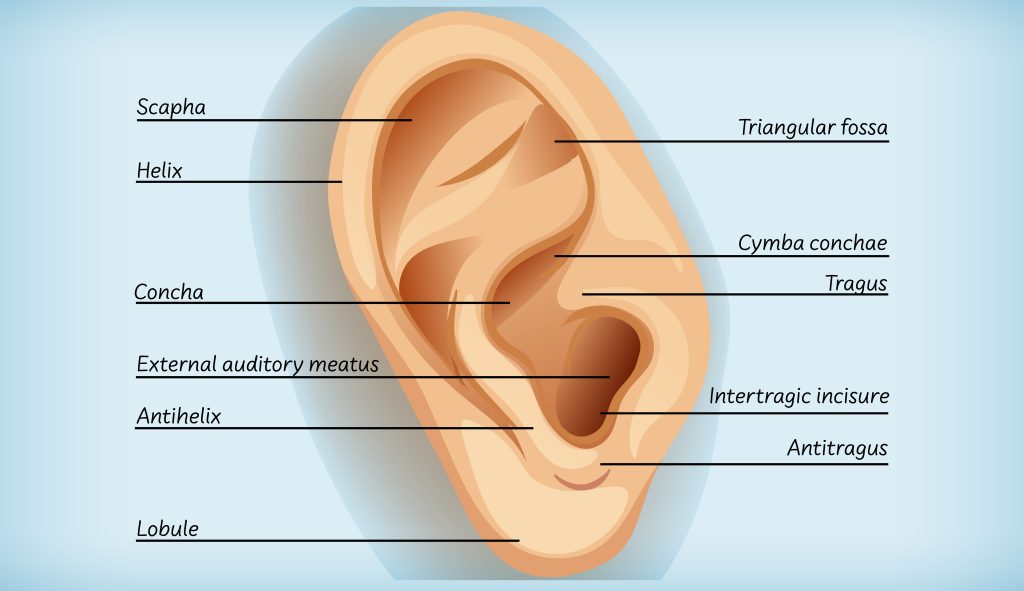Mastoidectomy in Türkiye
What is a mastoidectomy?
Mastoidectomy, or mastoidectomy, is a surgical procedure that removes diseased mastoid cells. The mastoid is the part of the skull located behind the ear. It is full of air cells made of bone and resembling a honeycomb. Diseased cells are often the result of an ear infection that has spread to the skull. The procedure may also be used to remove an abnormal growth of the ear known as a cholesteatoma.
Initially, this surgery can be performed as part of the treatment of mastoiditis as well as suppurative or chronic otitis media.
In addition, this operation is sometimes performed for other purposes such as cochlear implantation or access to the middle ear .
What is the mastoid?
The mastoid is the projecting of the five segments of the temporal bone of the skull. And it is located on the side of the skull just behind the ear.
This process can be felt in the hard area just behind and below the ear.
What are the signs and symptoms of mastoiditis?

Signs and symptoms of mastoiditis include pain, tenderness, and swelling in the mastoid area. Ear pain and redness in the mastoid area may occur. But some headaches may happen.
While newborns do not show specific symptoms, at the same time bouts of vomiting, diarrhea, and irritability may occur. A runny ear is a sign of danger.
What are the procedures for mastoidectomy in Türkiye?
Simple mastoidectomy
The surgeon opens the mastoid bone, removes infected air cells, and withdraws fluid from the middle ear
Radical mastoidectomy
In this type, the surgeon may remove the mastoid cells, the eardrum, and most of the structure of the middle ear, as well as the ear canal. This procedure is intended for complex mastoid disease.
Modified radical mastoidectomy:
It is a less severe form of radical mastoidectomy which involves the removal of the mastoid air cells along with some parts of the middle ear structure.
Little hearing loss can be expected with a modified radical or radical mastoidectomy.
On the other hand, this surgery was not common, as the problem is usually treated with antibiotics, but the option of surgery is offered if these antibiotics fail to treat.
Why do I need a mastoidectomy?
Mastoidectomy can treat complications of chronic otitis media. Some of these chronic diseases may lead to cholesteatoma, which is a skin cyst that grows gradually and leads to serious complications such as:
- Brain abscess
- hearing loss
- Also dizziness or lightheadedness
- Damage to the facial nerve that causes facial paralysis
- Meningitis, or inflammation of the lining of the brain
- Ear infection or inner ear infection.
- Persistent ear drainage.
The doctor may also perform a mastoidectomy to perform the cochlear implant. It is a small and complex electronic device that can help provide the sense of sound in cases of deafness or severe hearing loss.
This surgery can also remove abnormal tumors at the base of the skull
How is nipple removal surgery performed?
Mastoidectomy is done using general anesthesia. This ensures that the patient does not feel pain. When performing a simple papilloma excision, the surgeon does the following:
- Access to the mastoid bone through an incision behind the ear.
- Use a microscope and a small drill to open the mastoid bone.
- Use a suction irrigation system to keep the surgical area free of bone dust.
- Excavate infected air cells.
- Suturing the operation site.
- Cover the area with gauze to keep the wound clean and dry.
- The surgeon may also use a facial nerve monitor during surgery. This helps reduce facial nerve injury.
Recovery after mastectomy
Bandages are placed over the ear. There will also be stitches near the ear. There may be headache, discomfort and some numbness in patients.
After surgery, the doctor will:
- Pain reliever description
- Prescribe antibiotics to treat any infection
- A review date is set to examine the wound and remove any bandages and stitches.
In conclusion, you must follow the doctor’s instructions regarding wound care and the possibility of swimming or showering. All strenuous activities should be avoided for at least two to four weeks and pressure on the ear should also be avoided.
How can I book an appointment for mastoidectomy in Türkiye?

- Free medical support on the phone: You will have a dedicated representative for your health condition who is always ready to answer your questions.
- Free consultation with a specialist doctor: Your medical representative will consult with a number of doctors and hospitals to find the best possible treatments.
- Free travel visa arrangement: We will contact the embassy in your country to assist you in obtaining a visa to visit Türkiye.
- Free itinerary planning: We will create a schedule for your medical trip to Türkiye.
- Free translation of documents and reports: We will translate medical documents and reports into Turkish on your behalf.
- Free support and monitoring: We will monitor the stages of treatment and be by your side every step of the way.
- Free instant translation: We will be with you during the treatment stages to provide translation between you and the medical team.
- Free accommodation and transportation coordination: We will book accommodation for you and your companions in Türkiye, along with transportation services.
Contact REHABTÜRK doctors for more information about the procedure and to evaluate your medical condition.
